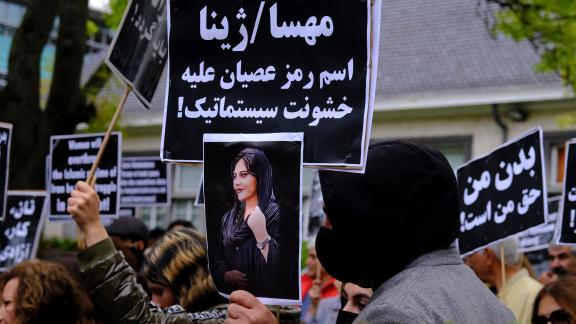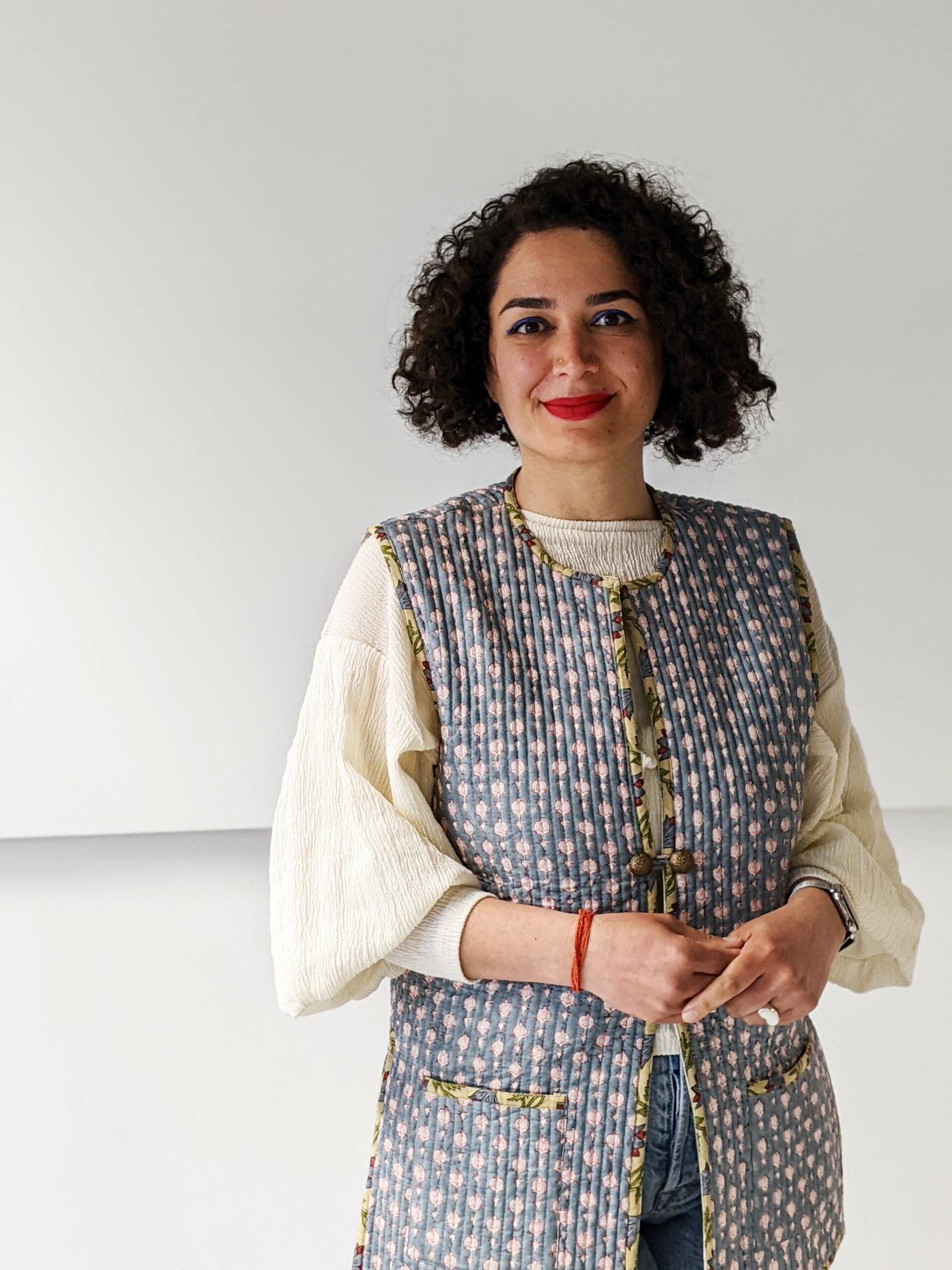Spectrum, Iran Community Partner
As a queer-feminist not-for-profit organisation, Spectrum works on a spectrum of projects connected to Gender Equality and Education focusing on different marginalized target groups, specifically an advanced understanding of the SRHR. Spectrum positions itself at the intersection of queer feminism, environmentalism, anti-capitalism, anti-colonialism, and anti-racism efforts, working towards a free and equal world.
The 12-Day War
On the night of June 13, 2025, the Israeli army launched a surprise attack on Iran, starting with targeted strikes on high-level military and nuclear programme figures and escalating to bombings of houses and infrastructure. In response, Iran launched missiles and bombs, leaving civilians in fear and disbelief at how their lives had radically changed overnight.
Whether people packed their suitcases and left the bigger cities under fire or hunkered down and stayed ‘home,’ there was no escaping the war. For women and queer people in particular, the consequences for their health and rights were catastrophic.
Sexual and Reproductive Health and Rights under Bombardments
It is hazardous to carry a child in a war, particularly in a country lacking basic protection and healthcare infrastructure. In Iran, pregnant people struggled to find safe places to deliver their babies and faced increased risks to their physical and mental health. For some, the war blocked access to essential care in the final weeks of their pregnancies. For others, the war caused traumatic miscarriages, leaving both physical and mental scars. Some gynecologists, obstetricians, nurses, and doctors began offering their services online, mostly free of charge, to support women and families in crisis. Some individuals have found support in their destinations, but many were without proper care and faced devastating consequences.
Single parents, especially mothers, shouldered an equally heavy burden – sheltering their families from the war, both physically and emotionally. “G”, a 40-year-old single mother of a 6-year-old from Tehran, explained:
“I managed to protect my child from even knowing there was a war ongoing. She understood that we were on a trip and were having fun. My whole family, friends, and I protected her, but in reality, we were very stressed and trying to find ways to distract her. I drove over 1000 kilometers to get to a place where things would be calmer. I put on headsets and followed the news, while my child was listening to happy children's songs. While I was not sure how many more days I would have enough money to support us, I knew I was responsible for her well-being.”
when
country
Iran
region
South Asia
The war has also exacerbated systematic political and cultural discrimination against the queer community in Iran. Trans individuals going through hormone therapy reported concerns about losing access to their hormones because, given limited medical care, the government and the system considered their needs secondary. During the war, many queer people were forced to flee back to their family homes, where most faced violence and prejudice. The war pushed them to leave behind the lives they had worked hard to establish in cities, giving up the freedom to love and live freely.
For one queer non-binary person, 24-year-old “M” from Tehran, moving back to their family home during the war had real consequences for their mental health. In their family home, they lacked privacy and had to speak with their partner in a language their family members would not understand. They were forced to engage in stressful, unwelcome conversations about their looks and gender expression, but, like many other queer people, they had no other option. They worked hard to build their life far from their family, but the war put their independence in jeopardy.
In a society where domestic violence is ignored, many people faced intensified mental, physical, and financial violence during the war. Even in peacetime, there are only a few shelters for women escaping abusive households, and none for queer people. And, reports of domestic violence are usually ignored by the authorities. The war trapped women and queer people in dangerous homes, making it impossible to access support through official or unofficial channels.
Recovering and Rebuilding: Negotiating Human Rights after the War
After the 12 days of military war and the cease-fire on June 24th, Iranians rediscovered their cities. They found their houses, businesses, cars, and schools destroyed, covered with ash. Individuals are still traumatised and have no space to heal, as the war has only ended on the surface. They face a constant fight against the Iranian regime to maintain their rights and freedoms.
Iran has never been a champion of human rights. Protections of sexual and reproductive health and rights (SRHR) of women, girls, and queer people have been steadily shrinking over time. Modern attacks on SRHR are a product of decades of discriminatory policy and systematic failures embedded in the legal and political framework of the Islamic Republic. The impacts of these failures have been amplified by the war.
For over a century, the Iranian feminist movement has challenged these discriminatory laws – from compulsory Hijab and unequal marriage and family laws, to gender-based discrimination in education and workspaces. One of the most significant wins of Iranian feminist organizing has been the movement against sexual and gender-based violence (SGBV) – the “Women, Life, Freedom” movement. The movement began in 2022 after Jina Mahsa Amini’s killing by the Moral Police while in custody for not having a “proper hijab.” “Women, Life, Freedom” went beyond resistance to gender based violence; it showed a deep dissatisfaction with the Iranian state in all its intersecting forms of oppression. While the movement shifted societal norms, no tangible positive change to laws or policies followed. We witnessed attempts to pass laws normalising and further institutionalizing SGBV by the government. All that, in order to protect “national security and the Iranian Islamic identity”.
But, women and queers in Iran do not need foreign armies and white cis male saviors to rescue them from the regime. Wars and military interventions, like the 12-Day War, make marginalized people and movements seeking freedom, equality, and justice more vulnerable. The Iranian regime is not an ally – they have oppressed civil society for decades. They used the war as a cover to commit further abuses in the name of control. Authorities cracked down on civil society and rushed into executions and arrests, silencing anyone who could have a voice online or offline. And, they used the war to justify the massive, violent expulsion of refugees and migrants from Afghanistan, some of whom have lived in Iran for generations. As the regime uses the aftermath of the war to breed fear and hate, activists and refugees are suffering the consequences.
Everyone in Iran is facing the terrible reality of war, and all that comes after. But none more than the women, queer people, and migrants, in all their diversities, who are paying for the war with their lives and rights. But, just as we persisted for liberation in 2022, we will continue fighting now. The powerful movements rooted in healing and desire for a better world will rise again to mend the scars of war and move forward. By believing in the solidarity and connectedness of our actions, and standing and marching together, we will win over hearts and minds. This movement comes from us, from our grassroots power and love, not from man-made wars and foreign saviors.
The spirit of Women, Life, Freedom extends beyond gender equality; it represents a holistic understanding of life in a free, equal, and just world. Let us march there hand in hand.
Image Credit: Protestors take part during a demonstration in front of the Iranian embassy in Brussels, Belgium on Sept. 23, 2022, following the death of Mahsa Amini. Photo by Alexandros Michailidis / Shutterstock.








